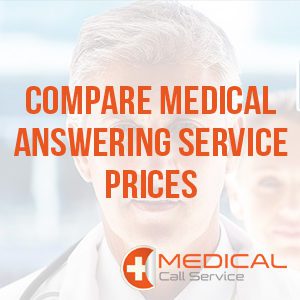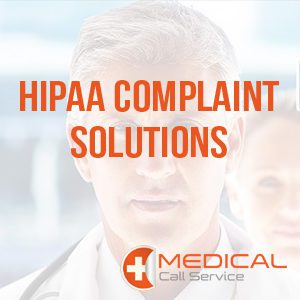
Protecting Vulnerable Patients with Medical Answering Services
In the complex ecosystem of healthcare, ensuring that every patient receives timely and appropriate care is a paramount yet challenging goal. Vulnerable patients, such as the elderly, those living with chronic conditions, or individuals facing socio-economic barriers, are particularly at risk of slipping through the cracks of the healthcare system. In this context, maintaining open, effective channels of communication becomes crucial. Medical answering services emerge as a vital solution, offering a lifeline to these patients by ensuring they have 24/7 access to care and support. This blog explores the multifaceted role of medical answering services in bridging the gap, ensuring that no patient is left behind.
Identifying Vulnerable Patients
Vulnerability in healthcare is multifaceted, encompassing a wide range of factors that may inhibit a patient’s ability to access and benefit from medical care. These factors include, but are not limited to, advanced age, chronic health conditions, language barriers, technological limitations, and socio-economic challenges. The repercussions of not adequately addressing the needs of these patients are dire, leading to deteriorating health conditions, unnecessary hospitalizations, and, ultimately, higher costs for both the patients and the healthcare system. Recognizing these vulnerabilities is the first step in crafting targeted interventions to mitigate their impact.
Challenges in Patient Communication and Follow-up
Effective communication forms the backbone of successful patient care, particularly for those most at risk. Yet, numerous barriers can hinder this essential interaction. Language differences, lack of familiarity with digital communication tools, and limited health literacy can all prevent vulnerable patients from fully engaging with their healthcare providers. Moreover, the importance of follow-up cannot be overstated; it is a critical component in managing chronic conditions, ensuring medication adherence, and facilitating recovery post-hospitalization. Without effective follow-up, vulnerable patients are at a higher risk of adverse health outcomes.
Medical answering services stand out as a crucial component of modern healthcare, particularly in supporting vulnerable populations. By ensuring round-the-clock access to care, personalized patient support, and enhanced care coordination, these services play a pivotal role in closing the healthcare gap. For healthcare providers, embracing medical answering services is not just an operational decision but a profound commitment to patient-centered care, where every individual has the support they need to navigate their health journey successfully.

The Role of Medical Answering Services
At the heart of addressing these challenges is the utilization of medical answering services, which provide a continuous link between patients and healthcare providers. These services ensure that when a patient reaches out—whether to seek advice, schedule an appointment, or report a health concern—their call is answered promptly and compassionately. This 24/7 accessibility can be particularly life-changing for patients with chronic illnesses who may require immediate assistance or guidance outside regular office hours.
By offering personalized support, medical answering services go beyond mere message-taking; they act as an extension of the healthcare provider’s team, tailoring their assistance to meet each patient’s unique needs. This level of personalized care can significantly enhance patient engagement, satisfaction, and overall confidence in their healthcare experience.
Integrating medical answering services into a healthcare provider’s patient care strategy can transform patient interactions, ensuring vulnerable populations receive the attention and support they need. This integration facilitates comprehensive care coordination, where patients are not only reminded of upcoming appointments but also receive follow-up calls to check on their well-being or understand post-treatment instructions clearly.
How Do Medical Answering Services Assist in Patient Care?
In the interconnected world of healthcare, the continuity and quality of patient care often hinge on the strength of communication channels between patients and healthcare providers. Medical answering services have emerged as a vital cog in this communication mechanism, particularly in extending the reach and responsiveness of healthcare services beyond traditional office hours. Here’s how these services play an instrumental role in enhancing patient care.
Round-the-Clock Accessibility
One of the most significant advantages of medical answering services is their ability to provide patients with 24/7 access to care. Health concerns don’t adhere to a 9-to-5 schedule; they can arise at any hour of the day or night. When patients know they can reach out and receive immediate assistance or guidance, it not only alleviates their anxiety but also can be crucial in managing acute health episodes effectively.
- Emergency Triage and Prioritization: Trained professionals can assess the severity of incoming calls, ensuring that urgent matters are escalated appropriately, and patients are directed to the right level of care without delay.
- After-Hours Support: For non-emergency concerns, medical answering services can offer advice, answer general health queries, and provide reassurance to patients, contributing to their peace of mind and overall well-being.

Personalized Patient Engagement
Medical answering services extend the personal touch of healthcare providers, making patients feel valued and heard. This personal engagement is critical in building trust and satisfaction.
- Follow-up Calls: Post-appointment follow-ups or medication adherence checks by answering services can reinforce care plans, encourage compliance, and give patients an opportunity to discuss any concerns regarding their treatment or recovery.
- Appointment Scheduling and Reminders: By managing appointment schedules, including booking and sending reminders, these services ensure that patients stay on track with their care, reducing no-show rates and optimizing the healthcare provider’s schedule.
Bridging Communication Gaps
Effective communication is key to patient-centered care, yet it’s an area where many healthcare systems fall short, particularly with vulnerable populations. Medical answering services can help bridge these gaps.
- Language and Accessibility Services: Offering multilingual support and accommodating patients with disabilities ensures that all patients have equal access to care and information.
- Educational Support: By providing clear, understandable information on healthcare processes, treatment options, and preventive care, answering services can enhance patients’ health literacy, empowering them to make informed decisions about their health.
Enhancing Care Coordination
In the complex ecosystem of modern healthcare, coordinating care among various providers, specialists, and care settings is crucial for patient outcomes. Medical answering services facilitate this coordination by serving as a communication hub.
- Information Relay: Essential information from patients can be accurately relayed to healthcare providers in a timely manner, ensuring that all members of the care team are up-to-date with the patient’s condition and treatment plans.
- Specialist Referrals: Answering services can assist in the referral process, helping patients navigate the steps needed to consult with specialists, thereby streamlining care pathways and reducing wait times.
Contributing to Healthcare Efficiency
By offloading the administrative burden of call management, appointment scheduling, and patient follow-ups, medical answering services allow healthcare providers to focus more on direct patient care, thereby enhancing the overall efficiency of healthcare delivery.
- Reduced Administrative Load: Healthcare staff can dedicate their time and resources to clinical tasks and patient interactions, improving service quality and patient satisfaction.
- Optimized Resource Utilization: Efficient scheduling and reminder services help manage patient flow, reducing idle time and maximizing the healthcare provider’s capacity to see patients.

Enhancing Practice Compliance: Navigating ADA Laws and Beyond
In an era where regulatory compliance is as crucial as the quality of care provided, healthcare practices are under increasing scrutiny to meet and exceed legal standards, including those set forth by the Americans with Disabilities Act (ADA). Medical answering services emerge as a strategic ally in this context, offering solutions that not only enhance patient care but also fortify a practice’s compliance posture, particularly with regard to accessibility and privacy laws.
ADA Compliance and Accessibility
The ADA mandates that healthcare providers offer equal access to services for individuals with disabilities, a stipulation that extends to communication methods. Medical answering services can play a critical role in ensuring that a healthcare practice meets these requirements.
- 24/7 Accessibility: By providing round-the-clock answering services, practices ensure that patients with disabilities can receive assistance, schedule appointments, and access medical advice whenever needed, thereby adhering to ADA mandates for accessible communication.
- Language Services: Compliance with the ADA also means accommodating patients who are deaf or hard of hearing. Reputable medical answering services offer TTY (Text Telephone) and TDD (Telecommunications Device for the Deaf) services, as well as language translation services, ensuring that language and hearing barriers do not impede access to care.
HIPAA Compliance and Patient Privacy
Another critical aspect of regulatory compliance for healthcare practices is adherence to the Health Insurance Portability and Accountability Act (HIPAA). Medical answering services that are HIPAA-compliant can significantly reduce the risk of privacy breaches while handling patient information.
- Secure Message Transmission: Compliant answering services use encrypted messaging platforms to transmit patient information securely between the service and the healthcare provider, protecting against unauthorized access.
- Trained Staff: Staff at medical answering services receive training on HIPAA regulations and the importance of maintaining patient confidentiality, ensuring that all communications and information handling meet stringent privacy standards.

Enhancing Record-Keeping and Documentation
Accurate and thorough documentation is vital for compliance, particularly when it comes to patient communications and interactions. Medical answering services contribute to this aspect by providing detailed call logs and records.
- Call Recording and Documentation: Calls handled by medical answering services are often recorded (with patient consent) and documented, providing a clear record of patient interactions. This documentation can be invaluable for dispute resolution, auditing purposes, and ensuring continuity of care.
- Data Analytics: Some medical answering services offer data analytics tools, allowing practices to analyze call volumes, types of inquiries, and patient needs. This data can assist practices in identifying trends, improving services, and ensuring compliance with patient care standards.
Streamlining Compliance Training
Keeping up with the latest regulations and ensuring all staff members are adequately trained can be a daunting task for healthcare practices. Partnering with a medical answering service can alleviate some of this burden.
- Compliance Expertise: Medical answering services stay abreast of the latest regulatory changes, including ADA and HIPAA updates. By relying on their expertise, practices can ensure that their patient communication strategies remain compliant.
- Staff Training Support: Some answering services offer training modules or support for healthcare staff, reinforcing best practices in patient communication and compliance.
In navigating the complex landscape of healthcare regulations, medical answering services offer a multifaceted solution that not only improves patient care but also bolsters a practice’s compliance with critical laws such as the ADA and HIPAA. By ensuring 24/7 accessibility, providing secure and confidential communication channels, assisting with accurate documentation, and offering compliance expertise, these services help healthcare practices meet regulatory demands while focusing on delivering excellent patient care. In essence, a partnership with a reputable medical answering service is not just an operational decision; it’s a strategic move towards building a more accessible, compliant, and patient-centered practice.
Medical answering services stand at the intersection of technology, communication, and healthcare, playing a pivotal role in ensuring that patient care is continuous, responsive, and personalized. By providing round-the-clock access, personalized engagement, essential support for care coordination, and contributing to the efficiency of healthcare delivery, these services not only enhance the patient experience but also support healthcare providers in delivering high-quality care. As healthcare continues to evolve towards more patient-centered models, the role of medical answering services in assisting patient care becomes increasingly indispensable, bridging gaps and ensuring that every patient receives the timely, attentive care they deserve.

Leave a Reply